PHOTOS: Iranian refugee couple starts new life in Seattle
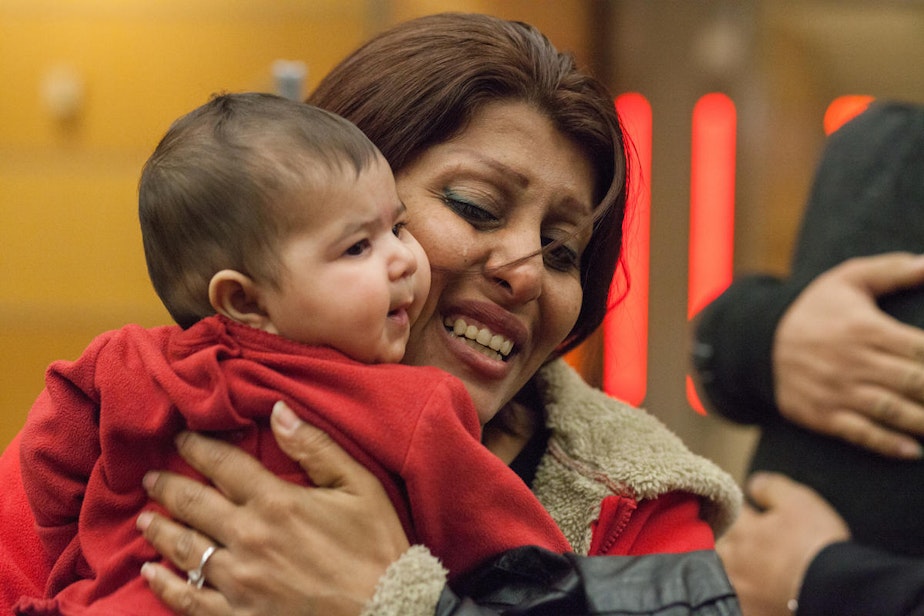
The couple won't say why they left Iran.
Did something bad happen?
"Yes," Peiman Karimi, the husband, says. "Not me. To Neda.”
Neda Sharifi Khalafabadi says she doesn’t feel comfortable to talk about it because it would bring everything back. All she says is her case is religious. The rest is confidential.
The U.S. defines a refugee as someone with a well-founded fear of persecution in their home country. Iran is a majority Muslim country. Religious minorities face discrimination, surveillance and arrest.
Peiman and Neda are Christian.
They went to Turkey first, which left them broke and broken-hearted. They arrived in Seattle Oct. 21, 2015.
They are close to 40 now. They feel young and open to new career paths. Seattle, with its robust economy and high minimum wage, is a draw for new refugees.
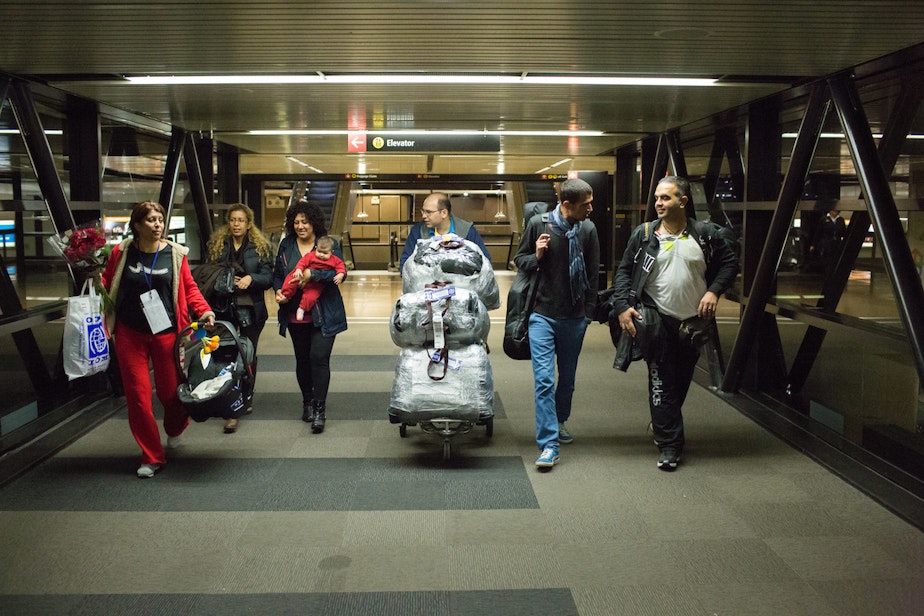
Since the Iranian revolution in 1979 and the subsequent shift to an Islamic government, more than 96,000 Iranian refugees have been resettled in the U.S., making it the eighth largest arrival group during that period. California is the top resettlement state; Washington ranks third.
"I come here because in my city I had problem," Peiman says. "Now here started new."
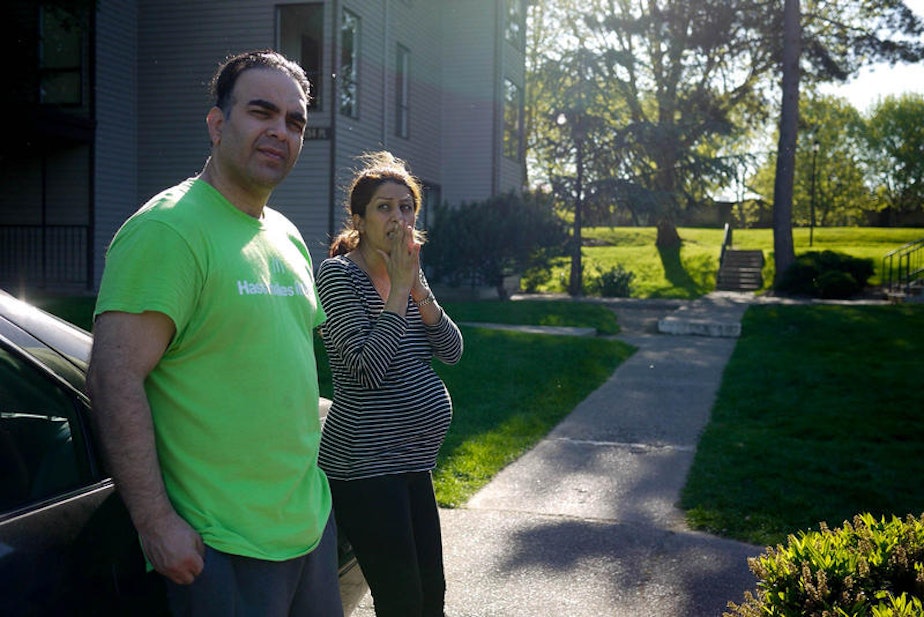
In Iran, Neda trained as a pastry chef and worked in a bakery. She often gives a half-smile with a furrowed brow. Her family teases her that she worries a lot. Her nickname is “Neda Stress.”
Peiman has a sweep of dark hair and a playful laugh. He worked various trade jobs in Iran — electrician, tel-com technician, welding inspector.
“Everything for me is different and change,” Peiman says. “Country change, language change, city change. Here now life is starting new.”
"After a job, I need to improve my language. When I don't speak English, the boss will not like." (And in Iranian culture he says, 'when you can't talk, it's like you're blind.)
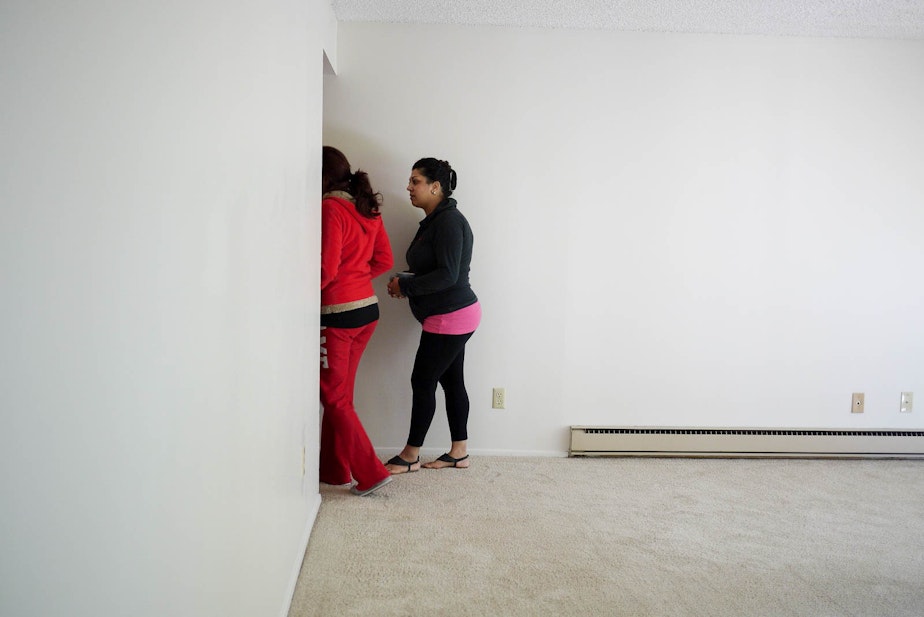
Their first months did not go as planned. Rent is higher than expected. They pay $865 a month for their one-bedroom apartment in Kent.
One silver lining is they get to spend time together. In Turkey, they worked six days a week, often for 12 hours a day.
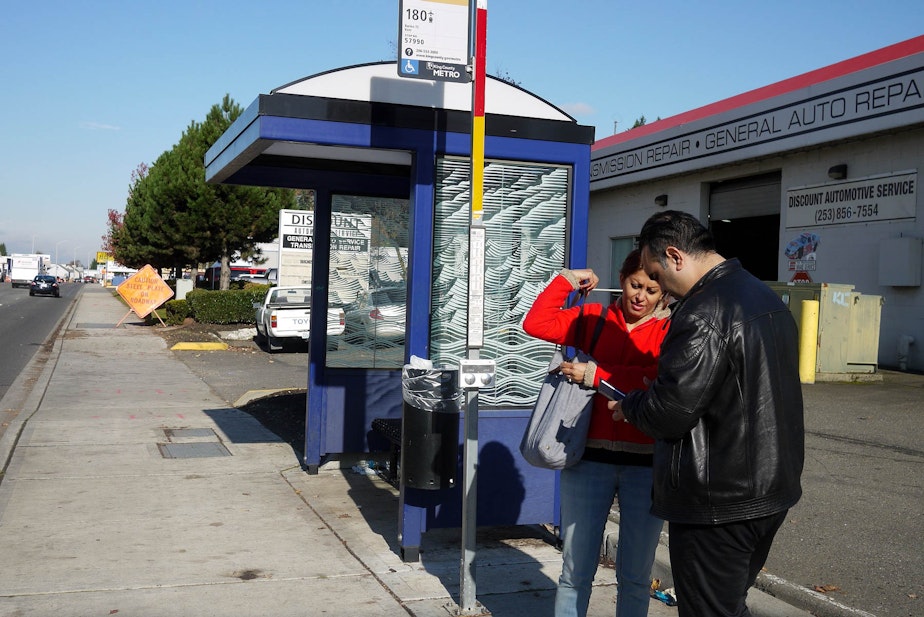
The journey has been hard on Neda. She cries a lot.
"I thought it would be much better," Neda says. "I thought finding a job would be easier, but it's hard. We don't have any connections here. Everything is based on connection."
Peiman tries to keep her spirits up, even though it's been trying on him too.
"A lot of people in Iran struggle more with life or they're in jail," Peiman says. "They don't have this opportunity. We have to do our best."
Five months after arriving in Seattle, they turn a major corner.
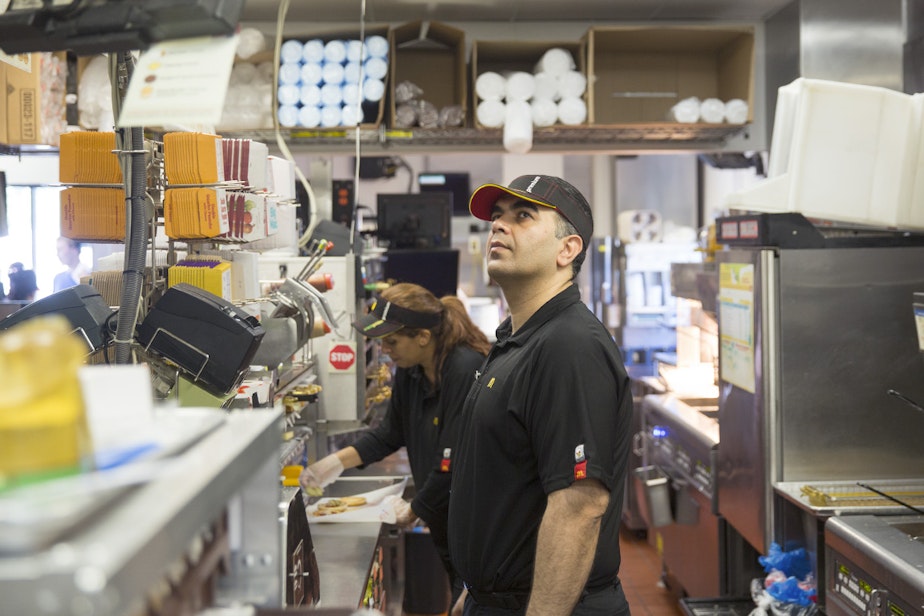
They both land their first job at one of the most all-American places around – McDonald’s.
It’s no coincidence they found this job. Lots of Iranians work here, says their manager, Mosh Zari.
“I have about 20 of them working for me,” Zari says.
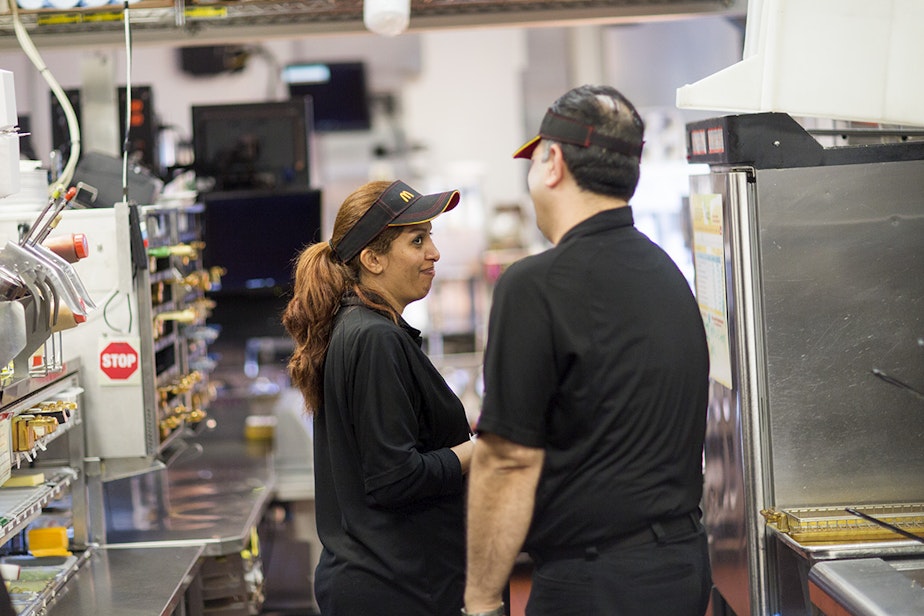
All from Iran?
“All from Iran. Yes.”
Zari is also Iranian.
These jobs are a humbling step down for Neda and Peiman. Zari sees that a lot.
“I’ve had people that were engineers back home, for instance, but for now they had to work and have an income,” he says.
Peiman tends the fryer. Neda assembles sandwiches. They each earn about $10 an hour.
Data show a refugee’s income tends to steadily increase over time. But it’s gotten tougher. And today’s refugees are not making the same gains as those who arrived in the 1980s and 1990s.
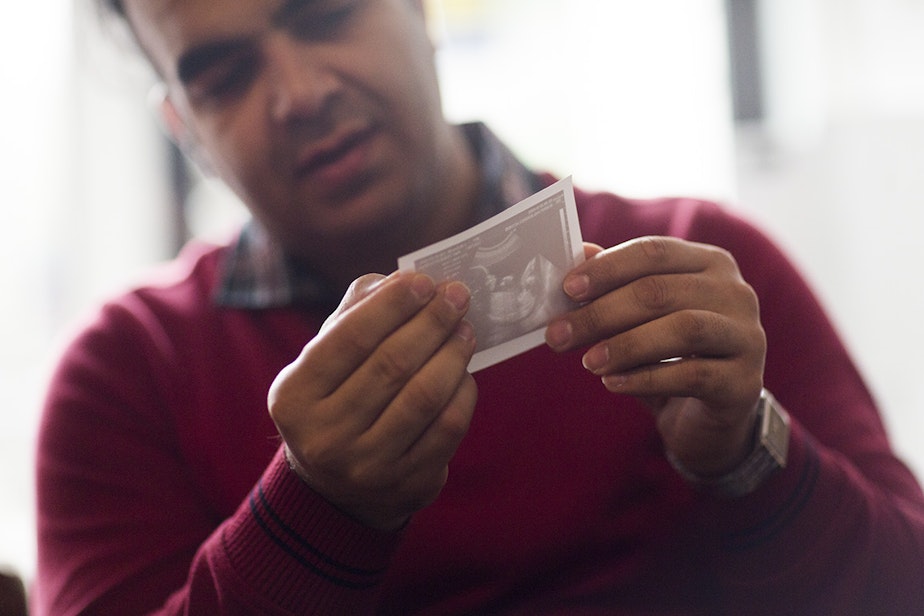
Soon after arriving in Seattle, Neda learns that she is pregnant. This wasn’t the plan, but the baby lights her and Peiman with joy.
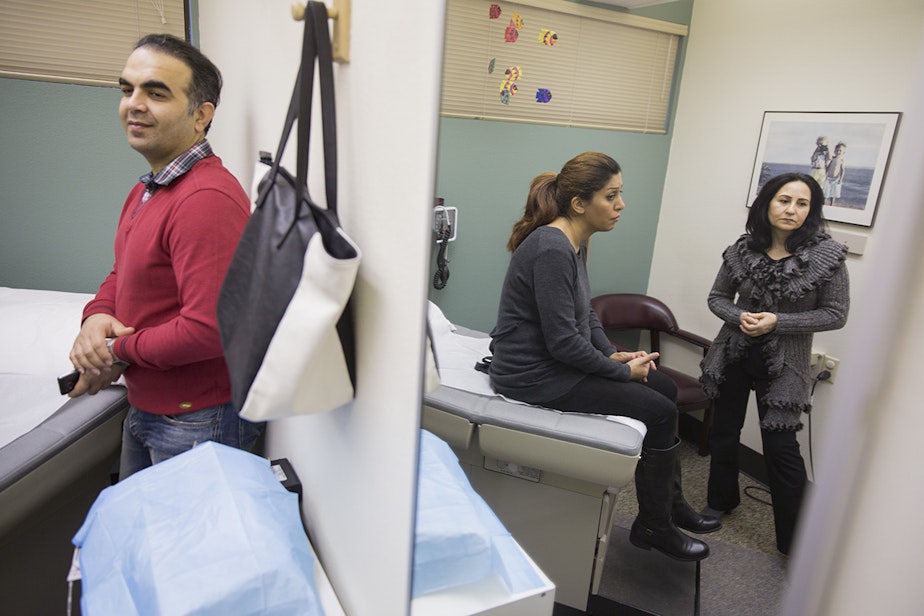
With a baby on the way, the Seattle-area ends up being too expensive for Neda and Peiman. They determine to try their luck in Palm Springs, where Peiman has more family and there's a much larger Iranian-American community nearby. Their new rent will save them a couple hundred dollars a month.
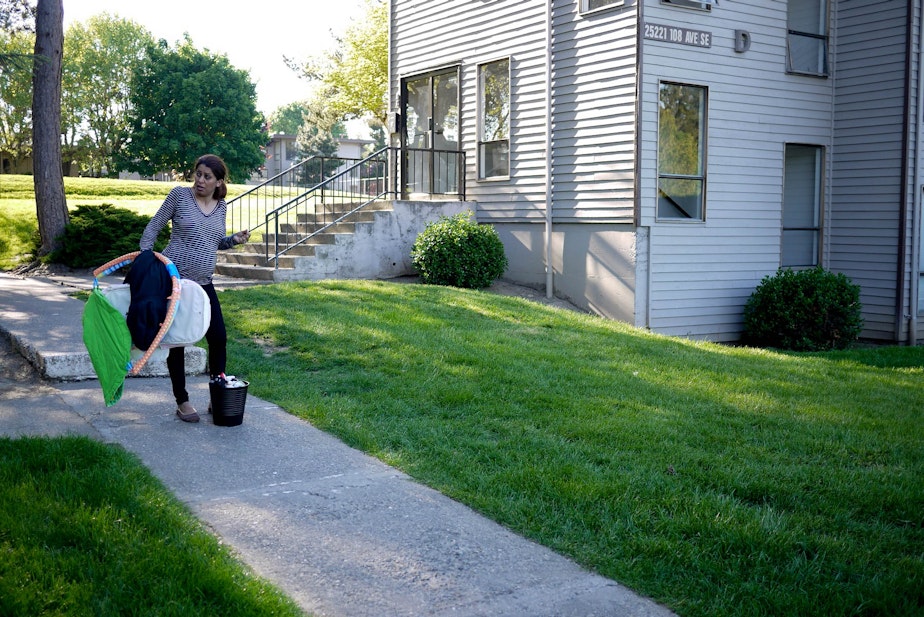
It’s common for new refugees to relocate. Officially, this is called secondary migration. And some experts say it’s an overlooked challenge in the resettlement process. Because people move around, but their support services don’t.
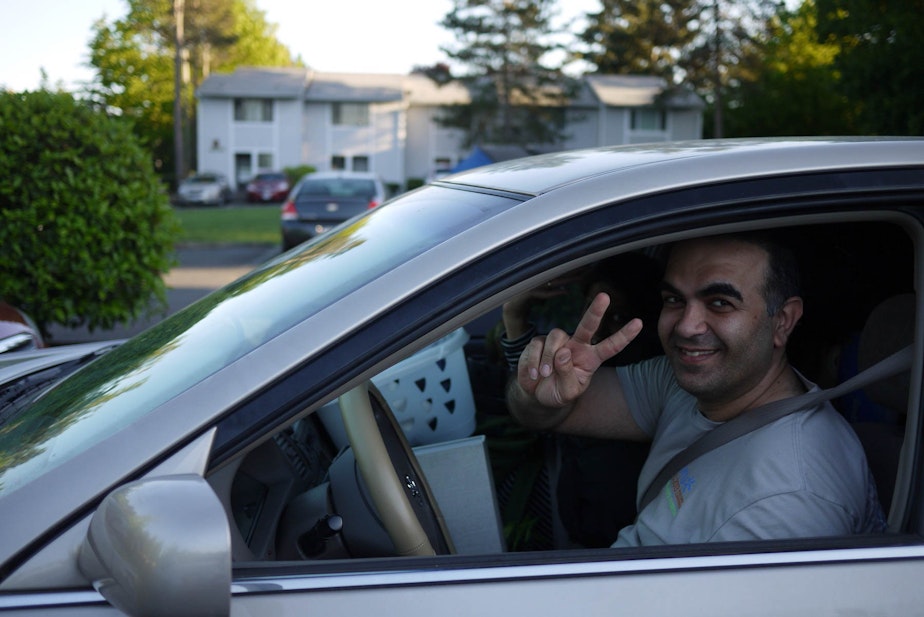
"I ask God to prepare everything, clear path for us, let me reach my goal and dream," Peiman says. "Of course we're not there yet, but I see the path is kind of clear and I’m moving toward that."
Thanks to Jewish Family Service of Seattle for assistance with this story.

